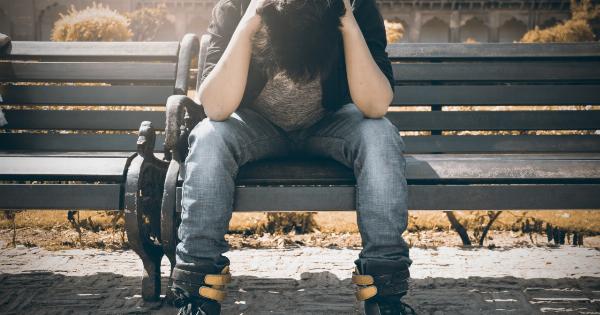Sexual fears and insecurities are common experiences that both men and women may encounter throughout their lives.
However, in today’s society, the focus is often placed on women’s sexual insecurities and concerns, while men’s experiences are often overlooked or dismissed. It is crucial to recognize and understand men’s sexual fears and insecurities, as addressing these issues can lead to healthier and more fulfilling intimate relationships.
The pressure to perform
One of the main sexual fears and insecurities that many men face is the pressure to perform. The societal expectation that men should always be ready and able to satisfy their partner can create anxiety and self-doubt.
This pressure can stem from various sources, such as media portrayals of male sexuality or personal insecurities about one’s own body or sexual abilities.
Body image concerns
Like women, men also have body image concerns that can affect their sexual confidence.
The idealized portrayal of masculine attractiveness in the media often emphasizes a muscular and well-endowed physique, which can lead to feelings of inadequacy for men who do not fit this mold. Such insecurities about body image can significantly impact a man’s self-esteem and hinder his ability to fully engage in sexual experiences.
Erectile dysfunction
Erectile dysfunction (ED) is another common fear and insecurity that men may experience. ED refers to the inability to achieve or maintain an erection sufficient for sexual intercourse.
While ED can have physical causes, such as underlying health conditions, it can also stem from psychological factors such as stress, anxiety, or relationship difficulties. The fear of experiencing ED can exacerbate the issue, creating a vicious cycle of performance anxiety and worsening symptoms.
Premature ejaculation
Similar to the fear of erectile dysfunction, premature ejaculation (PE) is another concern that men may have in their sexual lives.
PE refers to ejaculating earlier than desired during sexual activity, leading to feelings of embarrassment, guilt, and shame. This fear can create performance anxiety and impact a man’s sexual confidence, making it difficult to maintain a satisfying and mutually fulfilling sexual experience.
Communication barriers
Another factor contributing to men’s sexual fears and insecurities is the societal expectation for men to be strong, stoic, and self-reliant.
This cultural expectation often discourages men from openly discussing their sexual concerns and seeking support or guidance. This lack of communication can lead to feelings of isolation and prevent men from addressing their insecurities in a healthy and productive manner.
The influence of pornography
Pornography can also play a significant role in shaping men’s sexual fears and insecurities.
Consuming pornography can create unrealistic expectations and perceptions of sexual encounters, leading to feelings of inadequacy and performance pressure. Additionally, exposure to unrealistic body standards and sexual acts depicted in pornography can further contribute to body image concerns and anxieties surrounding sexual performance.
Impact on relationships
Men’s sexual fears and insecurities can have a significant impact on their relationships.
The fear of not meeting expectations or being judged by their partner can lead to avoidance of sexual intimacy, strained communication, and emotional distance. It is crucial for partners to foster an open and understanding environment, where both individuals feel safe to discuss their sexual fears and insecurities without judgment or criticism.
Overcoming sexual fears and insecurities
Addressing and overcoming sexual fears and insecurities requires a combination of self-reflection, open communication, and professional guidance if needed.
Recognizing that these fears and insecurities are common and normalizing discussions around them can help men feel less isolated and more empowered to seek support and solutions.
Therapy and counseling
Therapy and counseling can be beneficial for men who are struggling with sexual fears and insecurities.
A trained therapist can provide a safe and non-judgmental space to explore these concerns, identify their underlying causes, and develop strategies for overcoming them. Additionally, couples therapy can help partners improve their communication, strengthen their bond, and navigate the challenges that sexual fears and insecurities may bring to their relationship.
Education and self-acceptance
Education plays a vital role in addressing men’s sexual fears and insecurities.
Learning about the diversity of sexual experiences, understanding the importance of consent and communication, and challenging societal norms and expectations can help men develop a healthier and more positive mindset toward their own sexuality. Self-acceptance and self-compassion are also essential in overcoming sexual fears and insecurities.
Embracing one’s individuality and understanding that sexual experiences are unique to each individual can alleviate the pressure to conform to unrealistic standards.
Creating a supportive environment
Lastly, creating a supportive and understanding environment in society is crucial for addressing men’s sexual fears and insecurities.
Challenging harmful stereotypes, encouraging open conversations about sexuality, and promoting body positivity for all genders can contribute to a more inclusive and accepting culture. By deconstructing the societal expectations placed on men’s sexual performance and body image, we can create space for individuals to feel validated, respected, and empowered in their sexual journeys.































